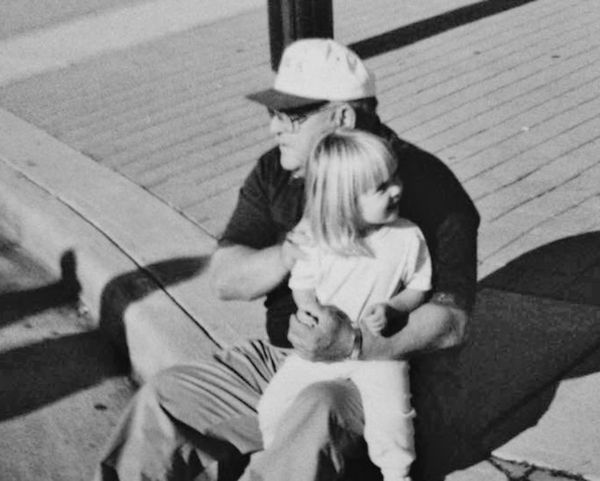In my 21 years on this Earth, I've never really had to deal with grief. Most of my grandparents died before I was old enough to be conscious of what was going on, and since then, no one close to me has passed away. In fact, the only time I can remember dealing with loss is the time my favorite barn cat got killed on the road we live on. His name was Cinnamon Sticks and I didn't really fare well until we got my house cat, Lillybelle, a couple of years later.
But I know what grief looks like, or at least what we expect it to look like. I work sound for funerals on occasion at my church, a less than favorable job that I do because my schedule is more clear than my Dad's. Because of that, I've seen more funerals in my life than weddings or baptisms, and I know what grief is for most people. It's the heartbreaking moment when you close the casket for the last time, or the distinct realization that no matter how much you want to, you'll never hear their voice again. Most, in response, shed some tears, lean on those around them, and graciously accept the hugs that are offered. Other's don't. And that's okay.
My Great Grandma recently passed away - my first encounter with death and grief since Cinnamon Sticks - and it was completely expected. For a two week period, she was just sort of in a downward spiral that we knew would end with our final goodbyes. When my mom called to tell me Great Grandma went into the hospital, I knew it wouldn't be long. This would be the end of her incredibly long and wonderful life, and when I got the phone call to tell me of her passing, it didn't shock me. I knew what the call was before I even picked up the phone.
The problem is, I'm not sure my reaction is what it's expected to be. Yes, I'm crushed that my Great Grandma died, how could I not be? All things considered, I grew up with her jokes and stories and willingness to teach me poker, and the fact that I'll never have those moments with her again makes me sad, but I still don't feel like my reaction is typical of most. I haven't really cried, I'm not one for hugs in the first place, and after the third or fourth time, the "I'm so sorry for your loss" got old. In fact, I sort of feel like I skipped over the stages of grief, and that's what makes me feel terrible.
I feel like I should be crying, or upset, or in need of a hug or reassurance, but I'm not, and I've come to realize that it's true - everyone responds to grief differently. The fact that I might stand by with dry eyes may make it seem as though I don't care when I very, very, very much do, but I cannot force myself to appear devastated just because we expect that type of reaction from someone who has just lost a loved one. My Great Grandma lived 97 wonderful, spontaneous, adventure-filled years and has inspired me to be a better person, and that, to me, isn't a reason to be sad at all. Her lessons and jokes will stay with me for the rest of my life, even if I'm unable to thank her face to face, and above all, she's in a better place now. She's happy, and so I'm happy too.
I've learned over the past week that grieving doesn't always look the same. Sometimes those who appear to being doing the best are actually faring the worst, and it turns out they're hurting just as much as those who are shedding tears. Grief, whenever we have to deal with it, feels like an unwanted pest that no matter how much we want to get rid of it, will stick with us forever. But funerals are supposed to be happy too. They're a chance to celebrate the amazing lives of those we love, and that's a good a reason as any to smile through the tears, as long as we remember that how a person grieves is left up to the individual.


















